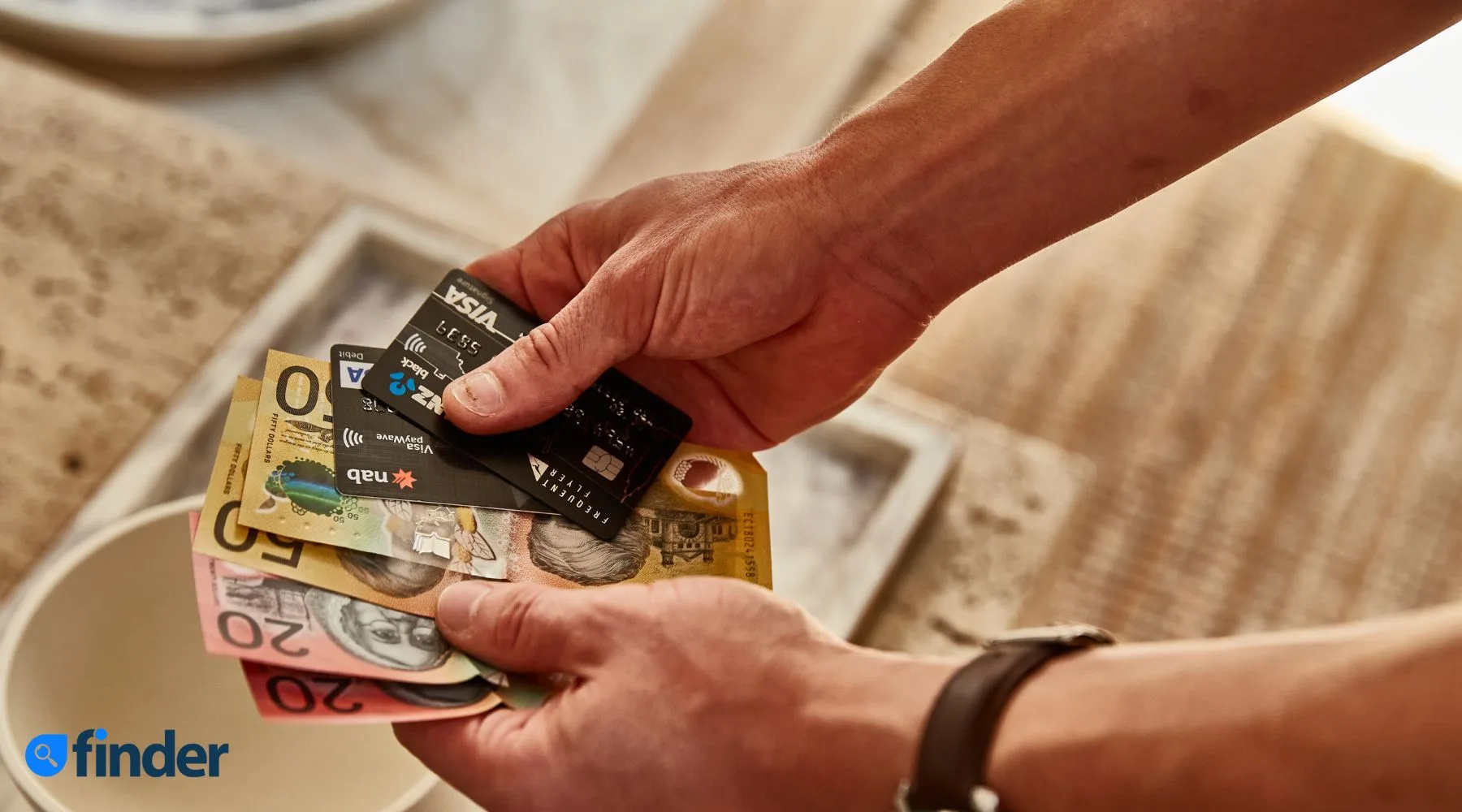The $423 million credit card mistake Australians keep making

Why you should avoid using your credit card to get cash.
Most of the time when we pay with a credit card it's counted as an everyday purchase.
But the latest RBA data shows Australians spent $423 million on credit card cash advances in November.
In fact, the value of cash advances has been over $400 million each month for the past 2 years.
While that is nowhere near the highs we saw pre-pandemic, it could still be costing Australians around $12.69 million in cash advance fees.
How is a cash advance different to a purchase?
In broad terms, a purchase is a product or service that you pay for with a credit card, while a cash advance gives you money (or an equivalent).
Some examples of cash advances include:
- Withdrawing cash from an ATM (including overseas)
- Buying foreign currency
- Transferring funds from your credit card to another account
- Gambling
But this is one of the most expensive ways to use a credit card because it typically attracts a high interest rate straight away, and a cash advance fee.
In fact, the interest rate for cash advances can be as high as 29.99% p.a. on some credit cards.
And cash advance fees are typically worth around 3% of the transaction's value.
Finder's head of consumer research, Graham Cooke, said these costs can quickly add up.
"Finder analysis of RBA data shows that the average credit card holder takes out nearly $400 in cash each month," he said.
"Many consumers don't realise that this means they pay interest immediately, and that $400 could be costing you an extra $12 in fees."
If you made the average cash advance every month, it would cost $144 in cash advance fees on a card with a typical 3% fee.
And unless you pay off the cash advance straight away, interest charges will also add to the costs.
In general, credit cards are best kept for purchases only.”
What to keep in mind before using your credit card
Withdrawing cash from an ATM is a clear example of a cash advance.
But there may still be times when it's not clear if something is or isn't a cash advance.
This is because every lender has a different definition of cash advances.
The business where you use your card and the details provided during the payment process can also influence how the transaction is defined on your account.
One example of a grey area for cash advances is buying gift cards.
While not technically cash, gift cards are a type of "stored value card".
This means they have a perceived or clear cash-equivalent value – and some credit cards include that term in their definition of a cash advance.
In fact, this was the reason I spent around 11 years avoiding using my credit card to buy gift cards.
But in December, I decided to find out what would happen if I used my frequent flyer credit card to pay for a gift card I wanted to get as a present.
Cash advances don't earn points, so I had another reason to test how the transaction would be defined by my card.
I deliberately bought the gift card at the supermarket because it's clearly a retail business (and those details can have an impact).
I also paid the exact amount off my credit card as soon as I left the shop.
In the end, the gift card was processed as a purchase and I earned points for it.
But I'd always rather be safe than sorry in my approach to these types of transactions.
4 tips to avoid cash advances on your credit card
- Check your credit card's definition of a "cash advance" and "purchase". Once you know what's considered a cash advance transaction, it's a lot easier to avoid them.
- Plan ahead. If you know you'll be going somewhere that's cash-only, head to an ATM or supermarket beforehand.
- Keep your payment options open. Take a debit card, prepaid card or cash with you when you're travelling or shopping in person.
- Check if there's another way to pay. For example, if you're out with friends or family and only have your credit card, ask if you can do a bank transfer to them for your share of expenses. If you have your phone, it could be virtually instant.
And if you do use your credit card for a cash advance, pay it off straight away – or as quickly as possible.
Want a new credit card? Compare the latest offers on Finder.

